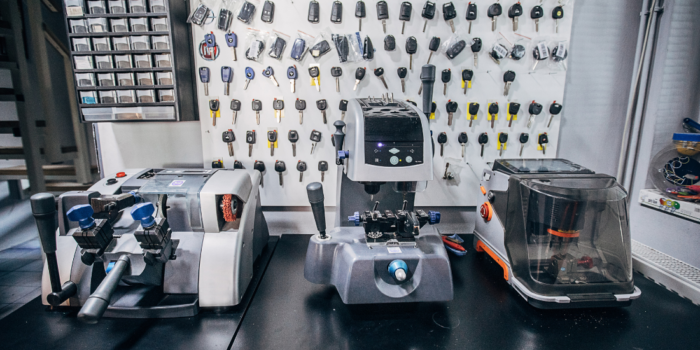The first trend is… just keeping up with them! The world of Industry 4.0 is…
All About The Ban On Diesel And Petrol Car Sales In 2030
According to official figures, domestic transport in the UK emits 107.5 million tonnes of CO² each year. While emissions are falling compared to pre-pandemic levels, the government has committed to drastically reducing the nation’s carbon footprint by banning the sale of new petrol and diesel cars by 2030.
With only six years before the legislation comes into force, all stakeholders within the automotive industry will need to actively plan for the change which will have far-reaching consequences for vehicle dealerships, garage services, local authorities, and motorists. In this article, we’ll outline the key points surrounding the 2030 ban on petrol and diesel cars and other changes that are likely to occur.
The 2030 Electric Car Law: Explained
From the end of the decade, the ban on diesel and petrol car sales will prohibit the sale of new vehicles powered solely by these conventional fuels, as well as hybrid cars. Motorists panicking about their existing cars, however, such as those who wonder what will happen to classic cars after 2030, can be reassured that the ban will not apply to:
- Second-hand car sales.
- The operation and repairs of existing petrol and diesel cars.
- The sale of fuel at petrol stations.
Preparing For The Transition
Technicians and automotive professionals across the UK will need to anticipate and adapt to the forthcoming legislation or risk being caught out and unprepared for the changes.
In particular, they should ensure their technical staff are comprehensively trained in all aspects of electric vehicle (EV) maintenance and repairs, to ensure that the workforce is equipped with the necessary skills and knowledge to support the growing demand for electric vehicles. To this end, the Institute of the Motor Industry (IMI) has urged the government to reintroduce EV training and services to ensure that the industry is fully readied for the impact of the legislation.
However, as automotive technology rapidly advances, the rise of EV cars is unlikely to be the only major change to which garages need to adapt. In the area of vehicle security, the following evolutions are also likely:
1. Keyless Entry And Start Systems
One change that is forthcoming is the integration of advanced keyless entry and start systems. These systems use Bluetooth and Near Field Communication (NFC) technology to communicate with the vehicle. Instead of a traditional key, owners can use their smartphones or key fobs to unlock and start their electric cars effortlessly.
2. Biometric Authentication
To provide an extra layer of security and convenience for electric car owners, manufacturers may incorporate biometric authentication into car keys, including fingerprint, facial, or voice recognition. By implementing this technology, the risk of unauthorised access to electric vehicles is significantly reduced while offering drivers a seamless and personalised experience.
Advanced Keys: Supporting The Transition
At Advanced Keys, we specialise in car key wholesale, including replacement fobs, remotes, and programming equipment, to help garage services be equipped for rapid advances in vehicle security. To find out more about our product range, please browse our website or get in touch today.
Image source: Canva



